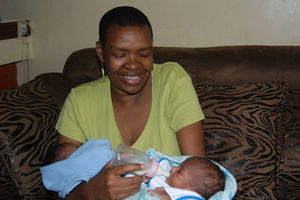
Those in this deeply religious African nations who reject the existence of God can walk a lonely path, facing rejection from family and friends — or even death threats. PHOTO | FILE
The celebration season is upon us. I wish you joyous Jamhuri festivities next Thursday, December 12. On the Western front, we literati are trooping to Kisii City for the second edition of the “Meet and Meat” literary rendezvous, like the one we had last year at Prof Kivutha Kibwana’s Emali ranch.
The youth in Kisumu will mark Jamhuri Day with a creative commemoration of one of their artistic leaders, Phoebe Achieng Obat, who passed away around this time last year. I understand that, apart from prayers and eulogies, there will be lots of music, poetry, drama, dancing and fashion displays, spearheaded by artists from the Mama Grace Onyango cultural hub.
But let’s go further back in time. Once, in my middle age years, I asked a woman, a colleague and dear friend of mine, to marry me. She turned me down. I was, understandably, surprised and disappointed because we were really close to each other. Indeed, I regarded her, and I still regard her, as one of my confidants.
When I asked my friend why she had rejected my proposal, her answer left me considerably puzzled, at the time. “You’re not assertive enough for me,” she said. “I want a man who can command, who can decisively guide me.”
I interpreted my “Beloved’s” explanation as a subtle assessment of my character, and oh, how incontrovertibly accurate it was! I certainly am not “assertive”, and I would never order or command anyone to do or desist from anything. I depend, in my relationships, on persuasion.
Anyway, that is enough of my romantic escapades. Suffice it to say that my respect and admiration for my would-not-be “fiancée” jumped up several notches in appreciation of her articulate assessment of the prospects of our relationship.
“Beloved” and I remain chums to this day, and she is one person who would come to my help in any situation. We sometimes joke about my proposal, with me saying, “Barkis is willing,” like Dickens’ coachman in David Copperfield.
I, however, recalled my rejected proposal for two reasons as we conclude, this weekend, our fortnight of highlighting gender-based violence (GBV). The first is the endemic role that cultural conditioning plays in our relationships. The second is that gender-based oppression is often practised and abetted by some of the victims of the oppression. This is what I have called “autoviolence”.
The negative yet deeply embedded effects of cultural conditioning may be seen in the reasons my friend gave for her rejection of my proposal. My “Beloved“ colleague is a topflight scholar and trained professional. Moreover, she is an exceptionally eloquent and fluent communicator. Indeed, she was one of the inspiring activists who converted me to a feminist ideology.
Yet, when it came to the crucial, personal choice of a partner, her considerations dropped “pop” into the mould of “African culture” expectations. She wanted to be a modest, pliable wife, commanded and controlled by an aggressive and assertive husband!
Despite all her education and sophistication, “Beloved” was reverting, subconsciously, to the “wife material” stereotypes of her culture. Mothers, aunts and grandmothers drum the stereotypes into the growing girl. “Be still, be soft, be something small, so men will want to play with you,” as a poetic friend of mine puts it.
This brings us to the “autoviolence” problem. Those who bring up girls, often women themselves, inflict verbal and physical violence on their charges. The “trainers” claim that they are preparing the girls for the domination and violence they will get from their husbands. The culmination of the brutalisation process in many communities is, of course, FGM, carried out by women.
Through such practices and direct indoctrination, like the common “cultural“ maxims about not answering back to a man, kneeling when greeting or talking to your husband, women are conditioned and brainwashed into accepting oppressive and abusive treatment from men.
The servitude is further aggravated by the trainers’ advice to cloak it in secrecy. “Matters of the household are never talked about in public,” the young maidens are told by their seniors. Many of them accept the toxic advice and go on to suffer in silence, even unto death, the torment and torture of their perverted partners.
This is not culture. It is a crime and it should be eradicated from every progressive society. Nonsensical distortions like “if your man doesn’t beat you, he doesn’t love you” must be extirpated from our people’s minds and mouths. We must unite to create a violence-free culture, especially on the domestic front. Marriages are partnerships and not master-servant arrangements where the man holds absolute sway.
As for the older women in “autoviolence”, perpetuating false perceptions of themselves and fellow women as inherently inferior and subservient to men, they should be stopped. Meanwhile, our new generations of men and, especially, women, should be raised from the earliest ages to truly accept and embrace gender equity and partnership. This will be a long and elaborate process of advocacy, education and sensitisation in every sector of our society.
In brief, let us seriously and consistently mainstream gender equity.
Prof Bukenya is a leading East African scholar of English and literature.









